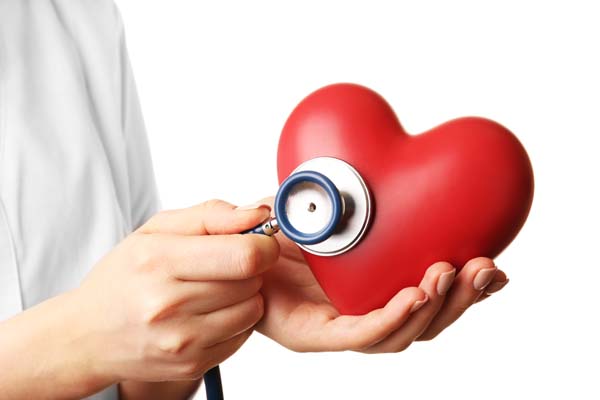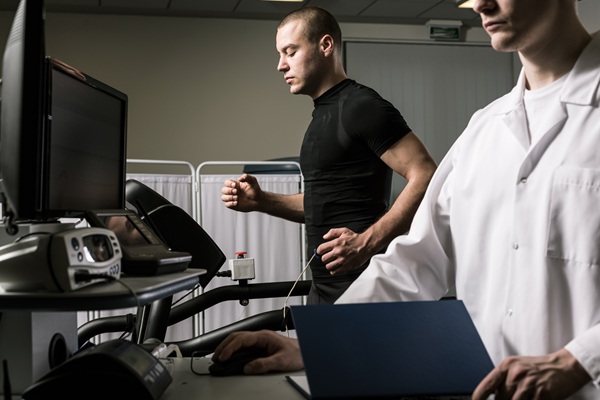Heart Disease Treatment Options From a Cardiologist

Heart disease treatment is necessary for patients suffering from cardiovascular diseases, a range of conditions that affect the heart and circulation. Heart disease is a prevalent condition in the United States and includes conditions like angina (chest pain) and heart attack, which are indications of coronary artery disease. This article covers treatment options available from a cardiologist.
Heart disease treatment
The treatment options available for heart disease range from medications to surgery. The cardiologist will work with patients to develop a treatment plan that fits their lifestyles and helps improve the overall condition of their hearts. Common treatments that the heart specialist might recommend include the following.
Heart medicines
Medicines are usually meant to treat the symptoms and risk factors of heart disease. Depending on the condition, the cardiologist might prescribe drugs to treat high cholesterol, high blood pressure, blood clots and heart failure. The cardiologist will discuss the available options with the patient and recommend the most suitable approach for their specific condition.
Cardiac rehabilitation
Cardiac rehabilitation is generally used together with other treatments to help patients recover from heart attacks, heart surgery, coronary angioplasty or heart failure. During cardiac rehabilitation, patients will learn how to follow a heart-healthy lifestyle. Cardiac rehabilitation includes supervised exercise, educational programs, assistance with smoking cessation and continual monitoring of the patient’s progress.
Comprehensive heart surgery
There are different types of heart surgery that the doctor might recommend for heart disease. Surgeries are meant to remove blockages, remove damaged tissues or give the heart a form of structural support. The cardiologist will discuss with the patient if heart surgery is the most appropriate option or not.
Bypass surgery
The doctor may suggest coronary bypass surgery if the patient has coronary artery disease and major blockages are present in the arteries delivering blood to the heart. In this surgery, the doctor will transfer a healthy blood vessel from another area of the body and connect it to the heart. This bypass forms a new path away from the clogged artery to enhance blood flow to the heart.
Angioplasty and stents
Angioplasty or stenting is recommended when there are blockages in the arteries. Angioplasty is a process where the heart doctor threads a tubing through the arteries to remove blockages and ensure proper blood circulation. Sometimes, stents are required; these are small, expandable mesh tubes that are inserted inside the arteries to open the path for blood flow.
Pacemakers
A pacemaker can sometimes be used to treat irregular heartbeats or slow heartbeats. Pacemakers are portable, battery-powered devices that set the heart's pace when the beating becomes slower. A pacemaker is attached to the heart and controls the heart rate via electric waves. Different types of pacemakers are available. The cardiologist will note any kind of arrhythmia before suggesting a pacemaker.
In summary
The symptoms of heart disease vary from one person to another. If you notice unusual symptoms that worthy of note, it is advisable to book an appointment with the cardiologist. The heart doctor can make a diagnosis and recommend heart disease treatment.
Get more information here: https://boyntonbeach.floridapremiercardio.com or call Florida Premier Cardiology at (561) 229-1411
Check out what others are saying about our services on Yelp: Read our Yelp reviews.
Recent Posts
A cardiac stress test is a diagnostic tool to evaluate how well the heart performs under physical stress. Cardiologists use this test to detect underlying cardiovascular conditions, monitor treatment progress, or assess the risk of future heart complications. Cardiac stress tests are essential in the early detection and management of heart disease.A cardiac stress test…
Peripheral arterial disease affects blood flow in the arteries, most commonly in the legs. It develops due to plaque buildup in the arteries that causes them to narrow and restrict circulation, possibly leading to discomfort, difficulty walking, and other serious complications. Recognizing the symptoms early and exploring treatment options can help improve the quality of…
Receiving cardiovascular treatment is a critical step in managing heart health, but recovery and long-term are equally vital to ensure long-term wellness. Whether the treatment involves medication management, interventional procedures, or surgery, maintaining a relationship with the cardiologist and following their recovery guidelines is crucial. A structured follow-up plan allows patients to maintain the benefits…
An echocardiogram is a common and painless test that helps doctors evaluate heart health. This test uses sound waves to create images of the heart, allowing cardiologists to examine its structure and function. Many people feel nervous before a medical test, but understanding what to expect can help reduce stress.An echocardiogram is a diagnostic test…


